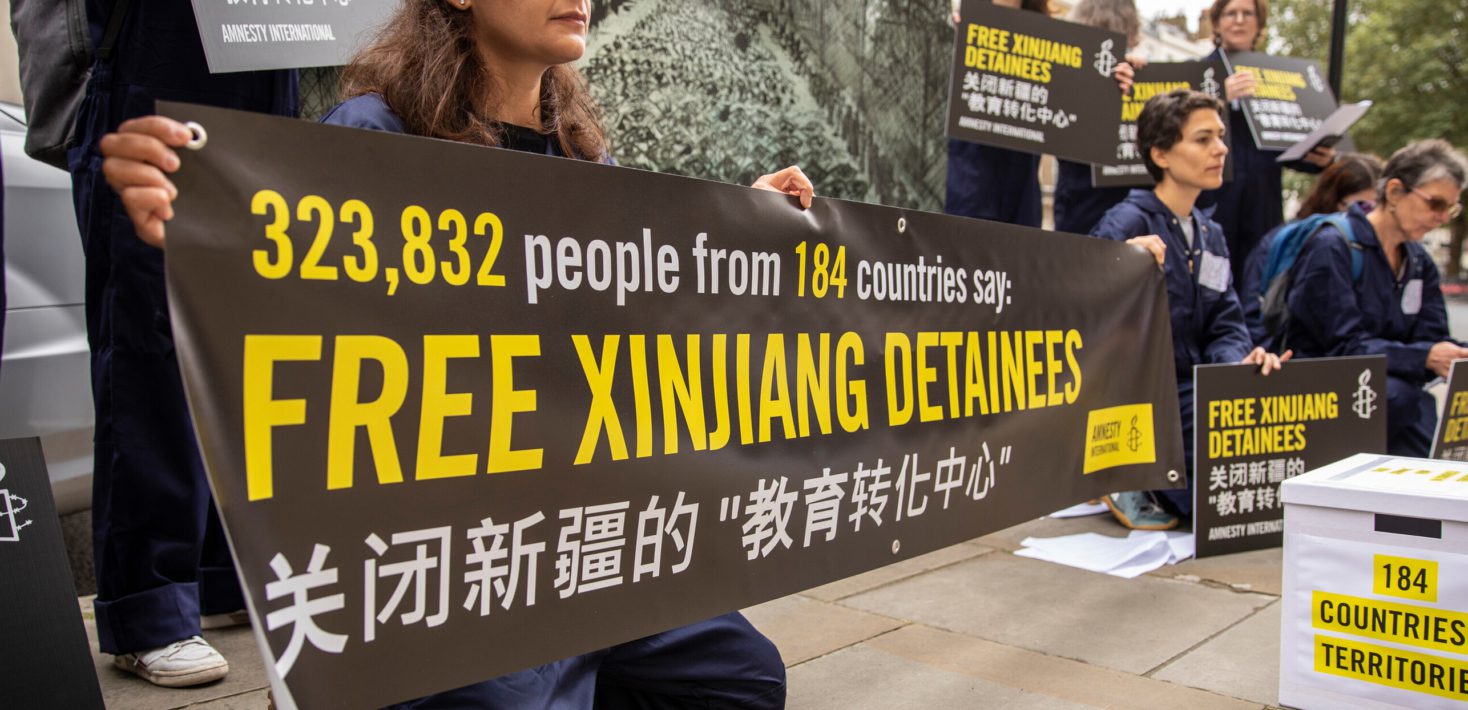
Amnesty International on Aug. 28 condemned the lack of accountability for the Chinese government’s treatment of Uyghur Muslims in western Xinjiang region, noting that nearly three years have passed since a groundbreaking UN report detailed gross violations of international law against the ethnic group. In commenting on the sheer scale of crimes committed by state authorities against the community, Amnesty International’s China director Sarah Brooks stated: “Lives have been ruined, families separated and communities dismantled by the Chinese authorities’ continuing cruelty. Today, families of detainees continue to seek truth, justice and freedom for all those suffering in the Uyghur region.”
In interviews with Amnesty, distraught family members recounted being prohibited from any form of contact with their loved ones, many of whom were suddenly taken away and imprisoned without due process or formal charges. They spoke of how they have remained in the dark for years about whether their relatives are alive, and how lack of transparency has meant fear and anguish, with one family member describing the uncertainty as a “wound that never heals.”
The comprehensive 2022 report outlined the wide scope of human rights abuses against the group, such as arbitrary detention at “Vocational Education & Training Centers” (VETC facilities), undue restrictions on cultural, linguistic and religious identity and expression through the “Strike Hard” campaign, and the excessive curtailment of the right to privacy and freedom of movement via intensive surveillance. Violation of the reproductive rights of Uyghur women has become alarmingly widespread, with mounting evidence of systematic forced sterilization, coerced birth control measures, rape, and sexual torture. These abuses are not isolated incidents, but were found to be part of broader state-imposed policies aimed at suppressing birth rates among the Uyghur population, amounting to a deliberate assault on both their bodily autonomy and cultural survival.
The deliberate eradication of a minority’s culture, combined with state-imposed measures to limit its birth rates, falls within the scope of genocide under international law.
Collectively, China’s crimes against Muslim minorities—including Uyghurs, Kazakhs, Kyrgyz, Uzbeks, Tajiks and Hui—may constitute crimes against humanity under international law, Amnesty stated.
Efforts by international human rights organizations—such as Amnesty International’s global petition which has received 323,000 signatures from over 184 countries, and coordinated legislation by parliaments from 11 countries—have helped to shed light on this crucial question. However, meaningful action remains deficient, allowing these abuses to persist with effective impunity.
Amnesty International urged the international community to take more proactive measures in ensuring that the Chinese government complies with is obligations under Article 1 of the United Nations Convention against Torture and Other Cruel, Inhuman or Degrading Treatment or Punishment and the International Convention on the Elimination of All Forms of Racial Discrimination (ICERD).
From JURIST, Aug. 28. Used with permission. Internal links added.
Photo: Amnesty International




